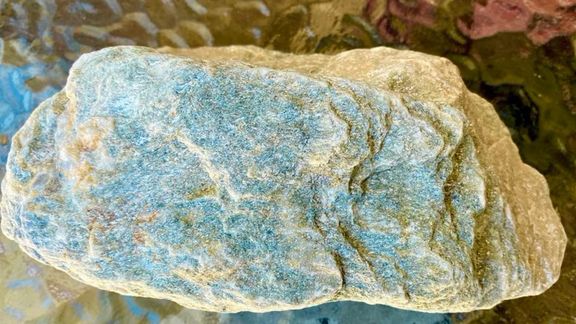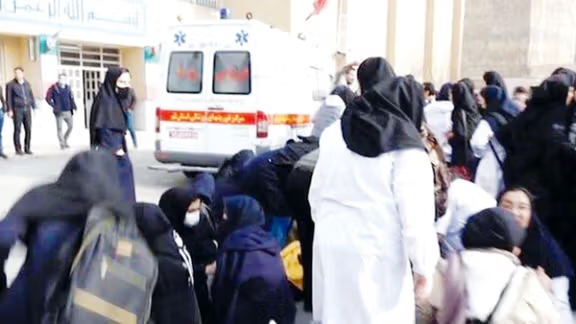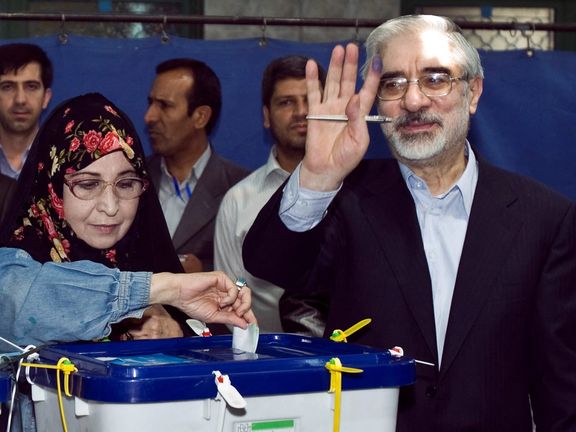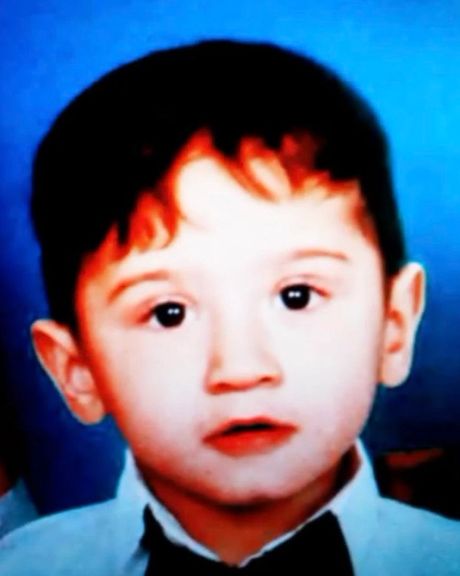Iran Says Large Lithium Deposit Discovered In West

An Iranian official says huge deposits of lithium have been discovered for the first time in the country’s western province of Hamadan.

An Iranian official says huge deposits of lithium have been discovered for the first time in the country’s western province of Hamadan.
"For the first time in Iran, a lithium reserve has been discovered in Qahavand in Hamedan province", Iran's state television quoted Mohammad Hadi Ahmadi, an industry ministry official.
The reserve is believed to hold 8.5 million tons of lithium, according to the director-general of the ministry's operating department Ebrahim Ali Molabeigi.
“The discovery of this mine took four years and the investor is ready to invest in it and this mine will be launched in the next two years.”
Iran is one of the few countries that has access to adequate amounts of reserves of rare elements and precious metals, and the discovery of the first lithium reserve in Hamedan promises the discovery of other reserves in this province, the ministry official told IRNA.
According to a United States Geological Survey (USGS) report published in 2022, a total of 89 million tons of lithium have been identified worldwide. Australia, Chile, Argentina and China are the main producers.
Lithium is an essential element for the manufacturing of batteries of electric vehicles. Given the scale of the threat posed by Climate Change, it crucially allows the functioning of the cars without the emission of Carbon dioxide. It is also dubbed as the "oil of the 21st century".
This white metal is also an essential component of rechargeable batteries used in cell phones and other electronic devices.

The Iraqi prime minister says Baghdad is not the messenger between Tehran and Washington, but it has its own initiatives in this regard.
In an interview with the Saudi Al-Arabiya network on Friday, Iraqi Prime Minister Mohammad Shia Al-Sudani emphasized that Iraq does not accept any aggression on its borders.
He said that Baghdad officially condemned the actions of Iran and Turkey against its territory and borders, and the security forces of the federal government of Iraq, in cooperation with the Kurdish authorities in the north, control the borders with Iran and Turkey.
The Iraqi prime minister said opposition to other countries from within Iraq should be “peaceful and unarmed.”
“We will not allow any side to bring Iraq into war and conflicts that are against our national interests,” he added.
Al-Sudani further stressed that Iraq is not a messenger between Iran and the United States, but it has an initiative to bring the two sides closer.
Earlier, Iraqi Foreign Minister Fuad Hussein said in an interview with Al-Sharq that the tensions between Iran and the United States affect Iraq either directly or indirectly because Baghdad has good relations with both sides.
He said Baghdad is not the backyard of any country and Iraq's position in this regard is clear.
The Iraqi foreign minister further underlined that the lack of tensions between regional countries benefits Iraq and if Tehran and Washington cannot resolve their differences, Baghdad can manage the crisis between the two.

Chemical attacks on girl's schools in Iran continued on Saturday with reports saying students in at least 16 elementary and high schools were poisoned.
A large number of students have been taken to hospital and based on published reports, the type of toxic substances used in the attacks has been identified.
The wave of intentional poisoning of female students, which started in November in the religious city of Qom, spread further throughout the country and reached schools in small towns and villages on Saturday.
Reports say female students of elementary and high schools in Tehran, Qom, Pakdasht, Karaj, Urmia, Zanjan, Hamedan, Safadasht, Shahriyar, and Rasht were taken to hospitals after being poisoned.
Tasnim News Agency, affiliated to the Revolutionary Guards, reported that at least 30 students at a school in Urmia in the northwest were transferred to medical centers in the city.
Attacks on schools in the past days were not only limited to female students, and reports also said that a group of male students were poisoned on Saturday following a chemical attack on a primary school in Karaj in the vicinity of Tehran.
Three months into the serial poisoning of students, not only the perpetrators of the chemical attacks have not been identified, but the attacks have spread to more cities.
Morteza Khatami, Vice-Chairman of the Parliament's Health and Treatment Commission, claimed on Saturday that students are poisoned by a combination of several types of gases.
It was previously announced that N2 gas was the cause of poisonings, but Khatami stated “N2 gas does not explain the symptoms and clinical manifestations, but other gases have symptoms that justify the numbness of the body.”
Nausea, vomiting, cough, shortness of breath, etc. are the symptoms Khatami mentioned adding that "according to clinical evidence, the students who were poisoned had unstable and short-term poisonings, but their tests were normal."
In the past days, many parents and some political and religious figures, including Sunni Imam of Zahedan,Mowlavi Abdolhamid have called the “deliberate” poisoning of female students to be a government project to take revenge on them for participating in the nationwide uprising after the death in custody of Mahsa Amini in September.
Security forces attacking parents outside schools in Tehran
Some others believe the aim of such attacks was to make girls and women stay at home, depriving them from education and any other social activity.
However, the Islamic Republic authorities and the state media are trying to blame their opponents for the biological terror of schoolgirls.
Kayhan hardline newspaper, in its report on Saturday, called the serial poisonings "a new phase of the hybrid war by the West and its Iranian allies against the Islamic Republic.”
Meanwhile, a group of protesting citizens and parents of poisoned students gathered in front of the education department in various cities including Tehran, Esfahan, Kermanshah and Ardebil on Saturday. Condemning the poisoning of female students, they chanted slogans against Iran’s ruler Ali Khamenei and senior government officials.
Reports say following the protests, dozens of people were arrested in different cities, and many were beaten by security forces and regime plainclothes mercenaries.
The families of some students in Tehran gathered outside the education ministry’s headquarters in protest and chanted the slogan like "Death to the Taliban, whether in Iran or Afghanistan".
The country's interior minister, Ahmad Vahidi, an ex-IRGC top officer wanted by Interpol for his part in the bombing of a Jewish community center in Buenos Aires in 1994, has been tasked with leading the investigation, though has so far denied any foul play.

Iranian opposition figure Mir-Hossein Mousavi (81) who has been under house arrest for 13 years has been hospitalized for a severe case of influenza.
Mousavi became ill recently and according to people close to him did not receive timely medical care in his house, where he is imprisoned along with his wife Zahra Rahnavard.
The official government news website IRNA claimed Friday that Mousavi became ill because of not following health guidelines and meeting with many people.
However, since he published a statement in early February demanding a referendum to change the political system, his house arrest had become more strict and he could have only met his daughters and the guards.
Mousavi was put under house arrest in 2011 when he was running as a reformist candidate and challenged the highly suspicious presidential re-election of Mahmoud Ahmadinejad in 2009.
Kalameh, a website based abroad, which carries news about Reformists in Iran including Mr. Mousavi, reported that he suffers from high fever and general weakness and has been transferred to hospital.
Mousavi’s call for a referendum was seen as a significant development since it was the first major break of a Reformist leader from the policy of defending the Islamic Republic and only asking for reforms.
Mousavi’s move enraged hardliners loyal to Iran’s ruler Ali Khamenei, some of whom have wished for his death after hearing the news about his illness.
Morteza Panahian, a well-known hardliner wished “success for the virus” and said that Mousavi’s death is 12 years overdue.
His supporters say that the delay in proper medical attention was intentional on the part of the government.

Iranian-born physicians in the West have appealed to International Federation of Red Cross and Red Crescent to intervene in widespread school poisonings in Iran and prevent mass casualty.
In their letter, published on Friday, the physicians living in North America and Europe wrote that young Iranian girls need the help of international assistance in the face of serial chemical attacks on their schools.
“As physicians, we view this crisis in Iran as a potential mass casualty scenario requiring urgent intervention by international disaster management organizations. We further consider these poisonings as premeditated attacks on Iran’s youth using substances that are applied in chemical warfare,” reads the letter signed by the 18 physicians.
Hundreds of female students in dozens of schools in many cities across Iran have been poisoned in the last three months by intentional gas attacks, which were not taken seriously by the government.
In all the cases, the students and their families attributed the poisoning to the inhalation of a poisonous gases.
Last week, a member of Iranian parliament said about 1,200 female students have been the target of attacks in three months.
After the MP’s remarks, several other cases of similar attacks reported on Monday, Tuesday, Wednesday and Saturday in several cities simultaneously. On Wednesday, according to some reports, 50 schools were attacked.
Videos published on social media show that dozens of students from schools were taken to hospitals in serious condition; some of them almost unconscious.
In one case the security forces attacked a concerned mother, severely beating her and pulling her hair.

A two-year-old child was killed on Friday after Iranian special forces opened fire at the car carrying him and his family in the central city of Esfahan.
The "1500 Images" Twitter account reported that “Last night [Friday], a mother and father with two young children were traveling in a car when a truck belonging to the special unit swiveled in front of them. The driver of the car (a family friend) thought the truck driver was sleepy, so he decided to go around the truck. But the special forces opened fire at them and killed the child by shooting him in the head.”
"Bazaar Civil Protest" Telegram channel identified the child as Amirali Musa-Kazemi, adding that he was killed as his family and several friends were on a recreational trip to Esfahan.
According to the report, the special unit's vehicle was a "truck unlike police cars" and the forces in it fired at the car without warning them to pull over.
It remains unclear why the special police unit opened fire at a car carrying ordinary citizens and children.
It is stated in the report that Amir-Ali's body was not handed over to his family under the pretext of handing it over to them in Tehran. The cause of death was registered as "unintentional murder".
Police officials are yet to react to the report.
This is not the first time children are killed by regime forces’ direct fire in private cars.
In the most controversial case, Kian Pirfalak, a 9-year-old child from Izeh in the south, was killed by the direct fire of government forces during nationwide protests on November 16.